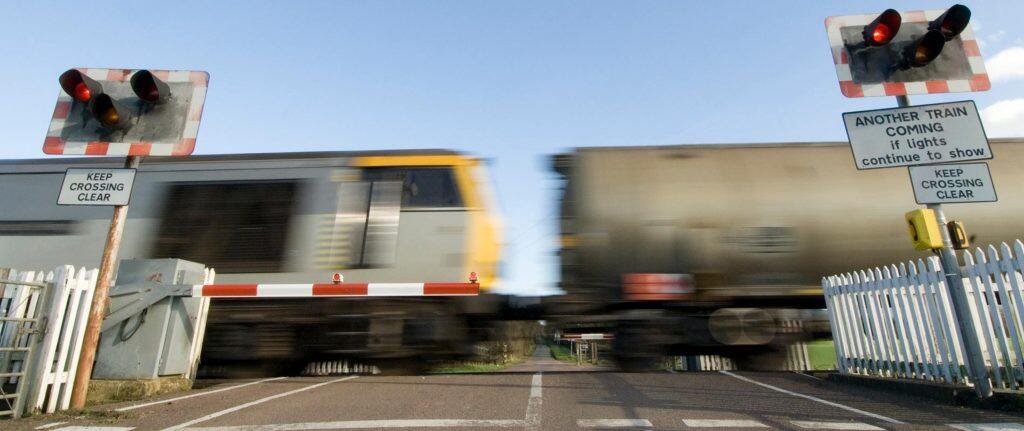The University of Hull’s Logistics Institute has been awarded funding by the Department for Transport (DfT), in partnership with Innovate UK, as part of the First of a Kind (FOAK) Competition 2021. Now in its fifth year, the FOAK competition is aimed at making railways cleaner, greener and more passenger friendly.


The Logistics Institute’s winning innovation, one of 30 ground- breaking projects awarded a share of the £9 million fund, is a novel Rail freight Energy & Emissions Calculator (REEC) that will be deployed on the Institute’s existing NR+ platform for rail freight planning.
REEC will enable rail freight operators to calculate accurate emissions on the fly, driving greater efficiencies and moving the rail industry – already the safest and greenest mode of ground-freight transport – a step closer to net zero. The project will be supported by leading rail freight operator, Freightliner, and consultants from Aether, Carrickarory, as well as an expert in emissions computation from the University of Derby. UK 2050 net carbon-neutral and DfT 2040 “no diesel-only” targets are challenging for the rail industry. The issue is more acute for Freight Operating Companies (FOCs) where a legacy fleet of mostly diesel locomotives will be operational for the next two decades and amplified by only 44% of the GB network being electrified. FOCs are actively pursuing ways to decarbonise and clean up diesel trains.
NR+ is the first digital platform that fully describes the UK rail network capability, enabling Network Rail, rail operating companies and rail freight users to quickly and accurately understand and analyse routing options on the complex UK rail network. It will be augmented with gradient and line speed data, together with train performance and OTMR data, to deliver a low-cost intelligent emissions calculation and mapping solution.
Using the calculator, the net accelerative/decelerative force on a train (based on resistive forces, track gradient, available tractive effort or brake force, train speed and mass) can be computed to determine how the train speed changes over time, the power that is required to be applied to meet the force balance and the time taken to traverse a section of track. The resulting emissions computations are much more precise than using simplistic g/km emission factors.
The calculator will bring a number of benefits to rail and freight operating companies. They will be able to look up the precise emissions for their routes and determine the effects on modal shift. Network Rail can use REEC to analyse the impact of delivering more efficient electrification strategies for freight trains. By including energy and emissions in freight bids, Network Rail planners can start incorporating emissions optimisation in timetabling and make informed decisions on the impact of the emissions of e.g. delayed or longer freight trains.
Amar Ramudhin, Director of the Logistics Institute, said: “Building on our innovative NR+ platform, our energy and emissions calculator will provide much more precise emissions data. This will allow DfT and Network Rail to align their investment on rail electrification to areas with higher emissions and lead to opportunities to plan routes that are lower in carbon emissions, contribution to the UK’s commitment to providing a more reliable, efficient, and greener railway, as well as the University of Hull’s commitment to accelerating a net zero future”.
Simon Edmonds, Deputy Executive Chair and Chief Business Officer of Innovate UK, said:
“As we move ever closer to getting past the pandemic, passengers are returning to the railway. To give them ever greater confidence that rail is safe and sustainable we called upon UK innovators to come up with fresh ideas. Yet again the response has been fantastic. Not only will passengers benefit from these great innovations, but business prospects are bright in this sector too.”
“Freightliner is excited to be a key partner in this pioneering rail freight project,” said Freightliner UK Rail Managing Director Tim Shakerley. “As the largest freight operator of electric traction, we already have a number of environmentally motivated initiatives underway and are delighted to be working with University of Hull, Aether, Carrickarory and University of Derby on this government-funded project, ensuring that rail freight is well positioned to deliver even greater economic benefits and the decarbonisation of the UK economy.”
Established in 2008, the Logistics Institute is a world-renowned centre for research, education and expertise in logistics and supply chain management. The Institute is a leader in applied logistics research and industry outreach programmes, both national and international, whose focus is to drive sustainable growth through viable logistics.






































